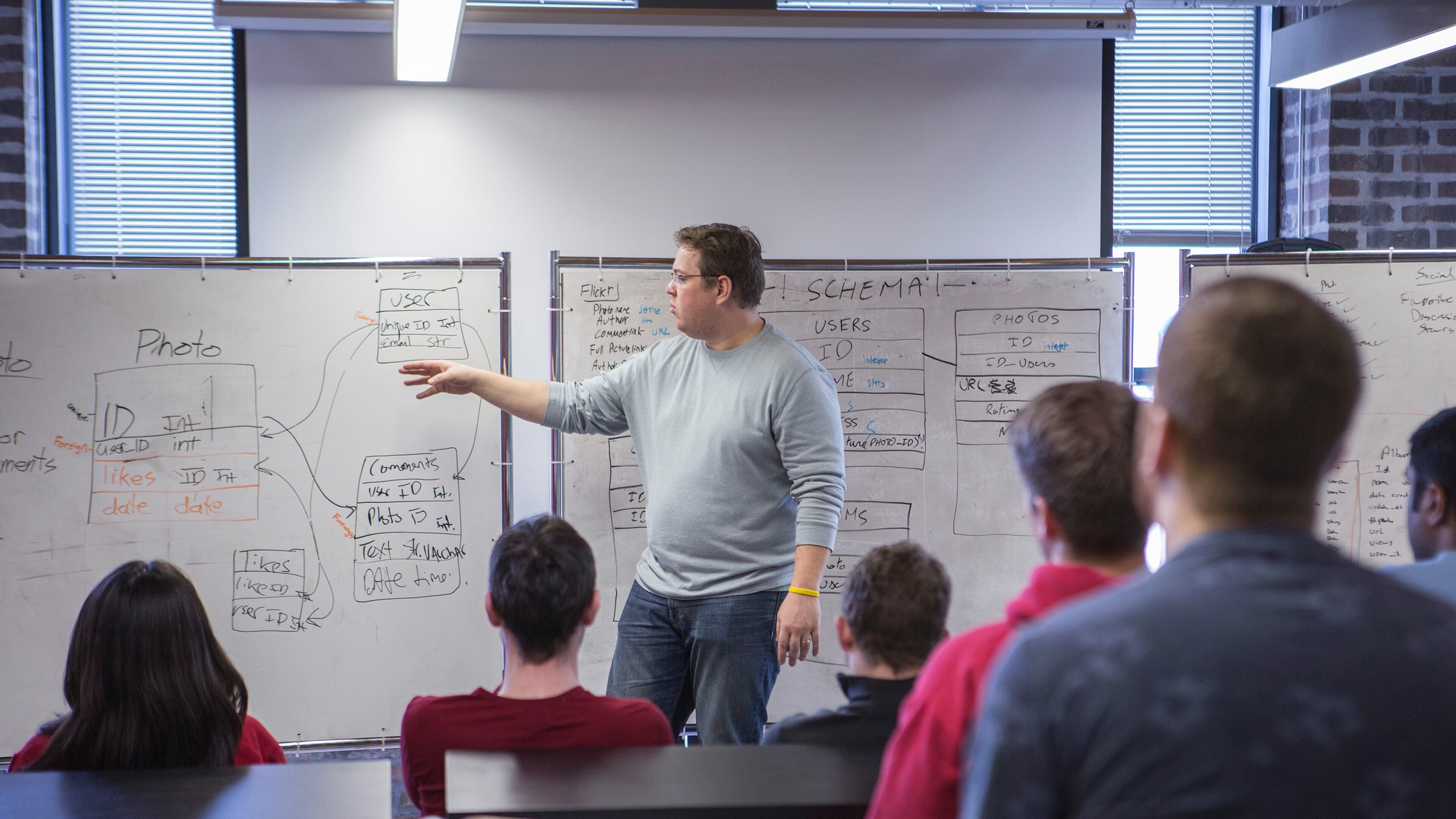Four classes every college student should take

Here is another provocative piece by AJC intern Martha Michael, a recent University of Georgia graduate with a degree in journalism and minors in political science and Spanish. A Valdosta resident, Michael interned with the AJC local news and features teams this summer. In September, she is going to Spain for 10 months to teach English.
In this piece, she cites four courses colleges ought to mandate for all students, including computer coding and personal finance.
By Martha Michael
One of my fellow interns wrote a column about general education requirements, those pesky classes that you have to take no matter what your major is, and the only way to avoid some of them is to earn college credit in high school by taking AP, IB or dual-enrollment classes.

Like Alma, I think many of these requirements can be a waste of time and resources, for students, teachers and the schools. And for public universities, it’s a waste of money by the state. Instead of requiring students take a one-credit hour physical education class, for example, which is an indirect way for graduate research assistants to earn money, we could increase research funding at our institutions of higher learning. But I digress, that’s not what I’m here to say.
The University System of Georgia and its member institutions should not eliminate all of their gen-ed requirements, but they should require classes that will provide students invaluable lessons, regardless of background, interests or major.
Here are four classes I think universities should require:
- Computer Science - Basic coding skills should no longer been viewed as an accessory, but a crucial skill in today's job market. Technology is integrated into nearly everything we do - even resumes have turned into online portfolios. In the Internet Age, knowing how to build and run a website, create graphics, model data and quickly adapt to a variety of software is useful in any work environment. So why wouldn't we require a class that teaches us more about tools we are already using? Providing all students a hands-on opportunity to engage with the basics of computer science will give them solid technological footing on top of whatever else they're studying. (Note: Although I'm a die-hard Dawg fan, this is one situation where Georgia Tech has us beat: They already require students to take Introduction to Computing.)
- Media Literacy - In the "fake news" generation, how do we know what we're reading is real, truthful reporting? I propose a class that teaches students how to navigate the media, and how to sort through a seemingly infinite amount of information to find what is reliable, and how to identify potential bias. Everyone, not just those interested in pursuing journalism, should be able to recognize the difference between trained reporters and the "panel of experts" talking on a TV news channel. But beyond journalism, students need to be able to recognize the credibility differences between Wikipedia and professional journals for a research paper. To produce well-rounded students, they should also be required to keep up with current events. Pushing students to become news literate will not only increase their awareness of what's going on in their cities, states and nation, but open up discussion on a broad range of issues among students. Finally, lessons on free speech rights, especially what rights students have on their college campuses, create informed citizens and prevent misunderstandings between university administrations and their students
- Personal Finance -This is the one I hear demanded the most. Many students graduate without a bank account separate from their parents, and are injected into the job search without financial independence. How many students have a clue of how to complete their annual state and federal taxes? Surprisingly few. Perhaps if colleges were producing more financially savvy graduates, the student loan debt crisis would not be as severe. Furthermore, graduates are entering the workforce without any experience or practice of negotiating a salary or benefits packages. If universities truly want to teach their students what it takes to be successful in the real world, they would ensure students were taught the basics of banking, budgeting, personal income taxes, credit, insurance, and salary and benefits negotiation. After all of the money students pay to a university, the least a school can do is ensure that those students are equipped with a certain level of financial awareness.
- Sexual Education - College campuses are home to a large population of students with sudden freedom and raging hormones. And, according to the Centers for Disease Control, young people aged 15–24 years acquire half of all new sexually transmitted diseases, and 1-in-4 sexually active adolescent females has an STD. Therefore, it should be a priority of all schools to educate students on their campus on how to be and stay healthy. Secondary public school sex-ed has a history of being underfunded and unreliable, since school boards usually bend their ear to concerned, overprotective, or religious parents on what constitutes appropriate sexual education so students hardly get anything out of the class. By college, parents no longer hold that sway over what information passes through their children's ears—or have supervision over their social behavior. A college-level sex-ed class could be a solution. Clear, fact-based lessons would address everything from STD prevention; recognizing signs of breast, prostate and ovarian cancer; to the female menstrual cycle. The other part of the class could be similar to UGA's Human Sexuality class, which includes discussions on consent, gender identity, and sexual orientation and behavior. It is also important to inform students of the spectrum of resources available on their campus, from where to find contraception, support groups for student mothers, to sexual assault help centers and hotlines.



